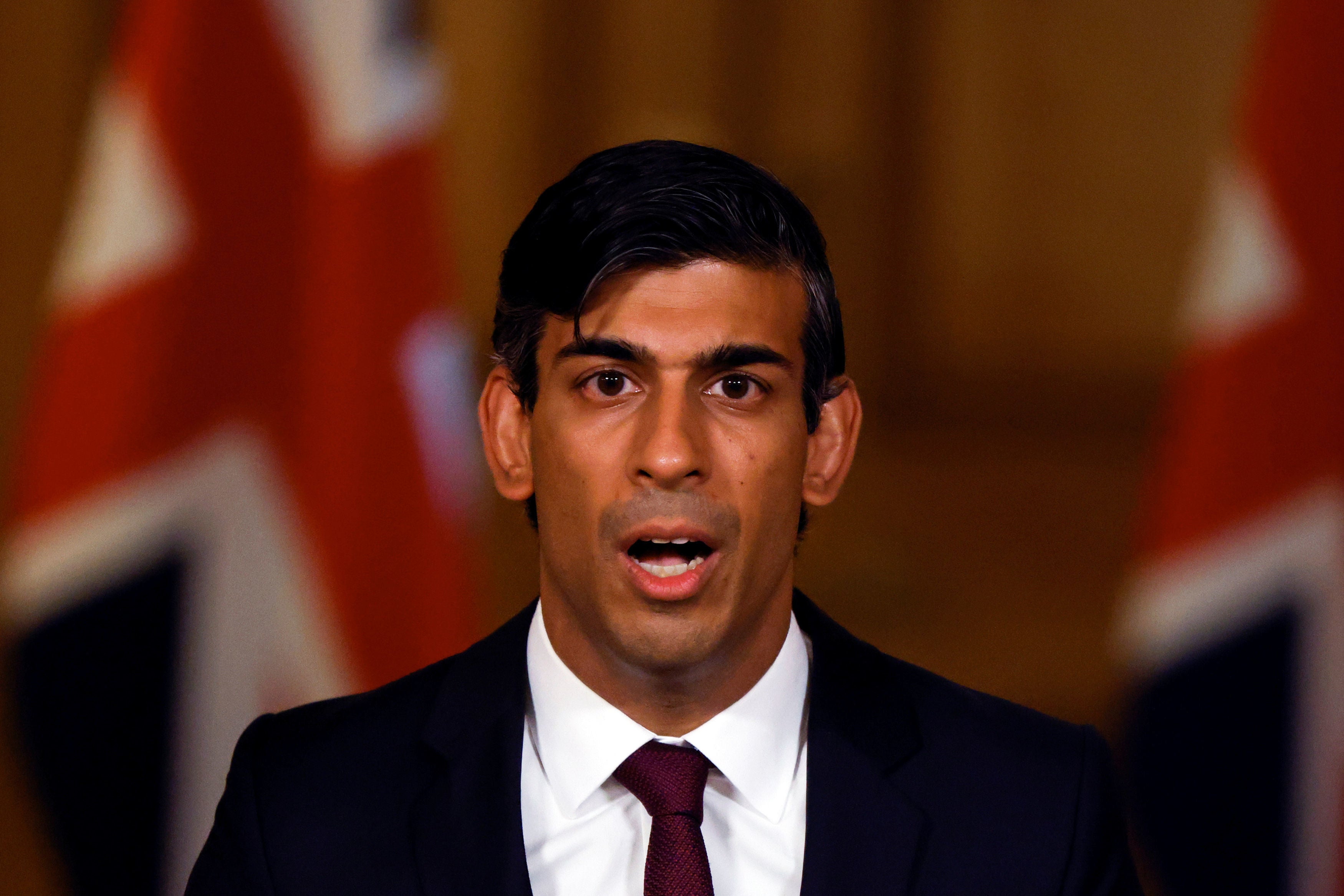Rishi Sunak has discovered how difficult it is to distance himself from Boris Johnson
The chancellor’s furlough U-turn has handed ammunition to his enemies, writes Andrew Grice


It would, Rishi Sunak said, be “fundamentally wrong to hold people in jobs that exist only in the furlough”. That was on 24 September. Six weeks on, the chancellor has performed a spectacular U-turn by extending his furlough scheme until March at an estimated cost of £6.2bn a month.
He has torn up his previous pledge to preserve only “viable” jobs. Some 400,000 furloughed jobs might disappear next spring. His decision is right, but it is very late in the day. Opposition parties, the CBI and TUC have been calling for it for months.
The latest last-minute move adds to the impression of a government running to catch up with coronavirus. Boris Johnson would almost certainly have saved lives by putting England in a temporary lockdown in September, when the Scientific Advisory Group on Emergencies (Sage) recommended it. Sunak, who talked Johnson out of it, would almost certainly have prevented redundancies if he had bitten the bullet on furlough earlier.
Why his sudden change of heart? Whitehall insiders detect the hand of Johnson. On Monday, he reminded Sunak who is first lord of the Treasury by bouncing him into a promise that workers in Scotland, Wales and Northern Ireland would receive 80 per cent of their wages if the devolved administrations imposed a lockdown in future. Johnson’s promise in the Commons chamber to Douglas Ross, leader of the Scottish Tories, had not been cleared with the Treasury. The door to extending the furlough beyond the November lockdown in England was prised open.
Of course, allies of the PM and chancellor deny any split; that comes with their job in any administration. But this big decision is undoubtedly a win for Johnson’s “spend, spend, spend” approach over a more cautious Sunak, who knows the nation’s books will have to be balanced by tax rises that are getting bigger by the day. Johnson lives for today, while Sunak frets about tomorrow.
Another factor in the U-turn might have been the Bank of England’s forecast that unemployment would rise to 7.75 per cent, or 2.6 million, by next summer. If so, the politics of rising unemployment, with the former red wall seats in the north and Midlands badly hit, trumped Sunak’s moral argument against preserving zombie jobs.
The chancellor has been the cabinet’s one success story in this crisis. But his image is becoming less shiny, before Santa Sunak turns into Scrooge and raises taxes. In September, Tory-supporting newspapers hailed him as a hero for saying the UK had to live with coronavirus “without fear”. Johnson would not have been amused by Brand Rishi’s differentiation strategy. On Friday, those same papers expressed concern about Sunak’s furlough U-turn. Similarly, anti-lockdown Tory MPs who believed Sunak was “one of us” – an idea he naturally did nothing to dispel – are not so sure now.
His fourth winter economic plan in six weeks was so rushed that he didn’t have time to fix the problems with furlough, which was thrown together at breakneck speed in March. For example, he could have helped the one million people who have fallen between the cracks of the government’s income support schemes, or better targeted his support for the self-employed.
Sunak has handed ammunition to his enemies. Labour’s decision to target him is clever politics. It gets under Johnson’s skin by reminding everyone the chancellor is waiting in the wings to replace him. It potentially dents Sunak’s popularity if he does lead the Tories into the next election. That prospect is growing as Johnson loses the support of Tory MPs. Fifty refused to vote for the lockdown this week and rebels claim 100 could oppose an attempt to extend it beyond 2 December.
Would Johnson risk such a dangerous rift within his own party if R (the average number of people infected by someone with the virus) does not fall below one by the end of this month? I doubt it. Johnson’s relationship with his backbench troops is at a new low; an extended lockdown, even one aimed at “saving Christmas,” might trigger a mutiny.
Whatever the infection rate and hospital admission figures, I suspect the PM will announce the end of his “tougher national measures”. (He can’t bring himself to call it the “circuit breaker” that Sage and Keir Starmer demanded.) But it’s very possible that hotspots like the northwest will remain under the current restrictions, which might then be branded tier 4 rather than lockdown. The furlough decision is a sign we will be living with some curbs until the spring.
One advantage of Sunak’s move is that it will help to avoid more disputes over financial support with local leaders such like Andy Burnham, who has long argued for an extended furlough.
Sunak has discovered how difficult it is to put distance between himself and Johnson while remaining in the PM’s tent. They are in it together.




Join our commenting forum
Join thought-provoking conversations, follow other Independent readers and see their replies
Comments